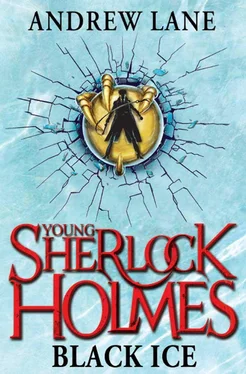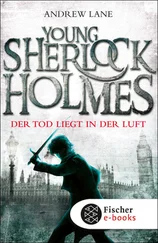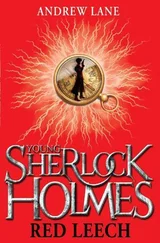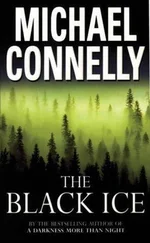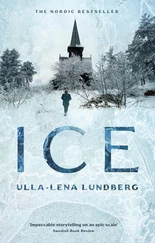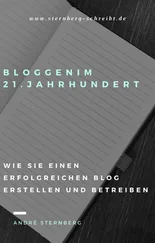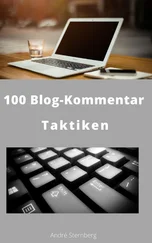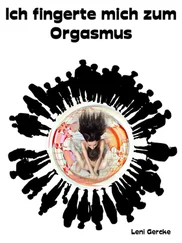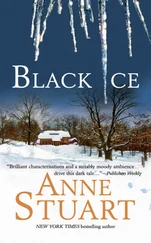Andrew Lane - Black Ice
Здесь есть возможность читать онлайн «Andrew Lane - Black Ice» весь текст электронной книги совершенно бесплатно (целиком полную версию без сокращений). В некоторых случаях можно слушать аудио, скачать через торрент в формате fb2 и присутствует краткое содержание. Жанр: Исторический детектив, на английском языке. Описание произведения, (предисловие) а так же отзывы посетителей доступны на портале библиотеки ЛибКат.
- Название:Black Ice
- Автор:
- Жанр:
- Год:неизвестен
- ISBN:нет данных
- Рейтинг книги:3 / 5. Голосов: 1
-
Избранное:Добавить в избранное
- Отзывы:
-
Ваша оценка:
- 60
- 1
- 2
- 3
- 4
- 5
Black Ice: краткое содержание, описание и аннотация
Предлагаем к чтению аннотацию, описание, краткое содержание или предисловие (зависит от того, что написал сам автор книги «Black Ice»). Если вы не нашли необходимую информацию о книге — напишите в комментариях, мы постараемся отыскать её.
Black Ice — читать онлайн бесплатно полную книгу (весь текст) целиком
Ниже представлен текст книги, разбитый по страницам. Система сохранения места последней прочитанной страницы, позволяет с удобством читать онлайн бесплатно книгу «Black Ice», без необходимости каждый раз заново искать на чём Вы остановились. Поставьте закладку, и сможете в любой момент перейти на страницу, на которой закончили чтение.
Интервал:
Закладка:
‘And Wormersley?’
‘Now, there I do have an answer. For understandable reasons, Count Shuvalov would not release him to us. He languishes in the cells at Lubyanka Square. Ironic, considering the fact that we went all the way to Moscow because that’s where I thought he was to begin with.’ He sighed. ‘He changed. He was not the man I thought he was. But then, I suppose that travelling the world does that to you, which is why I fully intend to do as little travelling as humanly possible for the rest of my life.’
‘Ah’m surprised Shuvalov believed you so readily,’ Crowe rumbled, still staring dubiously into the bowl. He stirred the soup experimentally with his spoon.
‘That’s another irony,’ Mycroft said. ‘I knew Shuvalov considerably less well than I knew Wormersley, and yet in the end it was that relationship which survived on trust and the other that failed. Shuvalov and I understand each other. We think alike. When he was informed that I had been arrested, he immediately called for me to be brought to him. We drank tea, and we talked in a very civilized manner. He apologized for any harsh behaviour his men had exhibited, and I apologized for arriving in his country without proper notification. That is the way international relations ought to be conducted: politely and with refreshments, not using trained falcons as instruments of assassination.’
‘An’ he believed the whole crazy story?’
‘Once Sherlock told his story, it was obvious that the evidence backed it up. People had seen the falcon, with its metal claws, fly into the carriage, and they’d seen both the fight between Sherlock and Wormersley and the fight between Mr Stone and Mr Kyte. And Shuvalov had already received reports of my arrest here in London for murder. He has his own agents in London, of course, as I have – or had – in Russia.’ He paused, thoughtfully. Although his agents probably don’t work secretly for the Paradol Chamber, which is a point to him in our ongoing game.’
‘Game?’ Sherlock queried.
‘The continual strategic struggle between Russia and Great Britain for control of Central Asia – Afghanistan and India. We call it the Great Game.’
‘Father is in India,’ Sherlock pointed out. ‘He’s fighting out there. It’s hardly a game, Mycroft.’
Mycroft had the grace to look abashed. ‘You’re right, dear boy. It is not a game, let alone a great one. Sitting here in London, in a comfortable armchair, it is possible to lose track of that. Perhaps if my time in Russia has taught me one thing, it is that the pieces that we so blithely move on the chessboard are real people, with real feelings. That is a lesson I will remember.’ He smiled tentatively. ‘But you have reminded me that I still owe you sight of Father’s letter, which he sent from India, and which you travelled up from Farnham to see. I have it with me. I will let you read it later.’
Amyus Crowe cleared his throat. ‘So what’s the plan now?’ he asked, obviously seeking to change the subject to something lighter. ‘Where do we go from here? For myself, ah’m plannin’ to spend some time with my daughter.’
‘I intend going back to my lodgings and my job,’ Mycroft said.
‘I suppose I’m heading back to Holmes Manor, to my aunt and uncle, and to the wonderful Mrs Eglantine,’ Sherlock said morosely. He looked over at Rufus Stone. For a moment his thoughts turned to Farnham, and to the black-clad woman who had been watching him, and who had vanished in an alleyway. At the time he’d assumed it was Mrs Eglantine, but now he wasn’t sure. Maybe it had been Miss Aiofe Dimmock checking on Mycroft’s brother before the Paradol Chamber swung their complicated plan into action. Or maybe it had been Mrs Eglantine. Sherlock decided there and then that when he returned to Holmes Manor he was going to get to the bottom of that particular mystery, and find out the true nature of the hold she had over his family.
‘What about you, Mr Stone?’ Mycroft asked, breaking into Sherlock’s train of thought.
Stone smiled and glanced at Sherlock. A gold tooth towards the back of his mouth twinkled in the candlelight. ‘I understand that you have a fine violin,’ he said. ‘I was hoping you would give me the pleasure of hearing you play it. Twice a week, for an hour a time. Do Tuesdays and Thursdays suit you?’
‘Perfectly,’ said Sherlock.
HISTORICAL NOTES
The museum in which Sherlock is attacked by a bird of prey is based on my memories of the Passmore Edwards Museum in Stratford, East London. I remember being taken there on school trips back in the early 1970s, and my overriding impression is of the sheer number of stuffed animals scattered around the old Victorian hallways (that, and the very musty smell). I’ve since discovered that John Passmore Edwards (1823-1911) was a British journalist and newspaper owner whose bequests resulted in the construction of 70 major buildings (primarily hospitals, libraries, schools, convalescence homes and art galleries) as well as 11 drinking fountains and 32 marble busts. A true Victorian philanthropist.
The Necropolis Railway really did exist. Only the Victorians could have thought of having a railway specifically for the dead. To be fair, if the Egyptians had known about railways they probably would have thought of it too, but only the Victorians would have charged different ticket prices for First, Second and Third Class travel for the coffins. I first came across mention of the Necropolis Railway in a book about the things that are hidden beneath London’s streets, and have since chased up more details in other similar books. The important ones are:
London Under London: A Subterranean Guide by Richard Trench and Ellis Hillman
(John Murray, 1993)
Underground London: Travels Beneath the City Streets by Stephen Smith
(Abacus, 2005)
Necropolis: London and Its Dead by Catharine Arnold
(Pocket Books, 2005)
The King’s Theatre in Whitechapel is based to a large extent on the Theatre Royal, Stratford. When I was at school, I used to do a fair amount of amateur dramatics, and some of the shows we did were put on at the Theatre Royal. It was built in 1888, and I spent a lot of time wandering around the backstage areas soaking up the atmosphere.
Sherlock and Mycroft’s sojourn in Russia was, surprisingly, very difficult to research. The majority of history books on the country concentrate on the Russian revolution (1917), the years of the Soviet Union (principally concentrating on Lenin, Trotsky and Stalin), and the time since the Soviet Union fell apart. The mid-nineteenth century is a bit of a blank. Eventually I decided to come at it sideways, through the Crimean War (1853-56), but I did discover late in the day a book which took quotes from Russian writers of around the right time and wove them into a kind of descriptive document. For the record, the books were:
A Brief History of the Crimean War by Alexander Troubetzkoy
(Robinson, 2006)
Literary Russia: A Guide by Anna Benn, Rosamund Bartlett
(Gerald Duckworth amp; Co, 2007)
I do admit, with some shame, that Wikipedia provided quite a lot of background detail on the Tsar, his secret police, and the Alaska land deal. Late in the day I discovered some issues of the London Illustrated News online, dating from the 1850s. A couple of these had reports from a journalist who had travelled to Moscow, and I shamelessly borrowed some of his descriptions of the city and its inhabitants.
Count Pyotr Andreyevich Shuvalov was a real person, and he really was in charge of the Third Section, which was actually the Tsar’s secret police force. Shuvalov did spend some time in France, which is where he would have met Mycroft Holmes. Prince Yusupov was also a real person, and a well-known patron of the arts.
Читать дальшеИнтервал:
Закладка:
Похожие книги на «Black Ice»
Представляем Вашему вниманию похожие книги на «Black Ice» списком для выбора. Мы отобрали схожую по названию и смыслу литературу в надежде предоставить читателям больше вариантов отыскать новые, интересные, ещё непрочитанные произведения.
Обсуждение, отзывы о книге «Black Ice» и просто собственные мнения читателей. Оставьте ваши комментарии, напишите, что Вы думаете о произведении, его смысле или главных героях. Укажите что конкретно понравилось, а что нет, и почему Вы так считаете.
